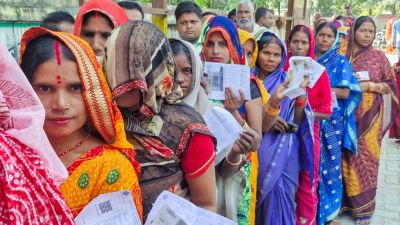CPM showing signs of gradual change
Thiruvananthapuram, oct 24: The pro-changers in the CPM led by Harkishen Singh Surjeet have won the day by managing to keep open the optio...

Thiruvananthapuram, oct 24: The pro-changers in the CPM led by Harkishen Singh Surjeet have won the day by managing to keep open the option of power-sharing at the Centre but only after the hardline critics of the move drew a firm assurance from Surjeet himself that the enabling amendment to the party programme would not be taken by the leadership as an automatic go-ahead for parliamentary governance.
Surjeet was less than convincing as he announced that the three-day special conference of the party had unanimously approved all the proposed amendments to the programme and was at his obfuscating best as he fielded questions from the media on how exactly the amendment to the relevant Chapter 7, clause 17 of the programme by way of an explanatory note on Government participation was received by the delegates.
While correctly maintaining that none of the amendments from the conference floor opposed to the Central Committee formulations was pressed, he chose to be silent on the one crucial amendment from the delegates that tried to set conditions for the party’s participation in Government.
The amendment, moved by a CITU leader from Kerala, which said that the party should take part only in a Government in which it could wield decisive influence was pressed and voted out by a very big margin. This only reiterated the earlier position of the party on the issue, that had originally embodied in a 1967 document on “New Situation and New Tasks”.
The position had acquired the status of a binding thesis and the hardliners were trying to defeat the very purpose of the official amendment by trying to incorporate it in the programme.
A similar amendment by the fundamentalist fringe calling for retention of the original 1964 programme in toto was also unceremoniously voted out. The defeat of the amendment was a definite turnaround for the pro-changers who were in a clear minority at the Calcutta party congress only two years ago.
A less glaring but more significant outcome of the CPM meet was the subtle revision of the party’s rather archaic vision of “people’s democracy” that has been severely limiting its capacity to intervene in day-to-day politics.
The allowance for regulated entry of multi-national capital in high science and technology area, the abandoning of the slogans of all-out nationalisation and confiscation of land without compensation have flowed out of an ideological acceptance of the multi-party political system and multi-structural economy. This would certainly enhance the CPM’s credentials as a responsible party of governance.
The new thinking slowly gaining ground among the CPM cadres is also reflected in the revised understanding of the role of state governments led by the party.
Gone are the days when the West Bengal or Kerala governments were seen as essentially instruments of struggle incapable of attempting anything more than modest relief programmes of the people.
The revised party programme enjoins the CPM-led governments to offer feasible alternative models of development. The way the wind has started blowing in the party has also been indicated by the adoption by the conference a non-official amendment that specifically committed the party to provide reservation for women in legislature.



- 01
- 02
- 03
- 04
- 05



























